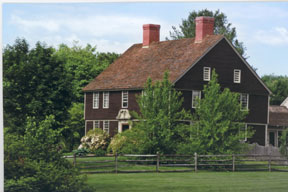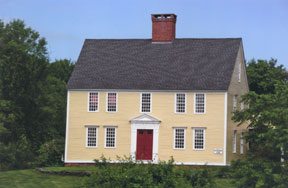
Home Structural Products & Services, Stairlifts
Structural Products & Services, Stairlifts
Furniture, Clocks,
Accessories
Antiques, Folk Art,
Fine Art, Auction Houses
FROM THE EDITOR
Of Time and the Housatonic
| Back in the mid-1930s, Van Wyck Brooks was complaining that summer in Westport was turning into a“highbrow Coney Island.” Thrifty Yankee that he was (he was actually born in New Jersey,) he would rent out his house for the summer for $900 and rent a cottage for himself and his family in Maine for $100. During these years, he would write The Flowering of New England and New England: Indian Summer, the two books together forming a sort of inspirational pipeline from Emerson’s and Thoreau’s time to his own. |  Historic Windsor |
| This pipeline from the New England Renaissance was expanded into my times by men from Connecticut, including Wallace Stevens and Charles Ives, and by Connecticut women like Jean Lipman and Alice Winchester, with powerful assistance from Robert Frost of New Hampshire and John Dewey of Vermont. “Never forget,” Brooks wrote (and, true as it is, it doesn’t bear comment), “that it is we New Yorkers and New Englanders who have a monopoly of whatever oxygen there is in the American continent.” |  Built by Captain David Ellsworth 1750 Windsor |
As luck or fate would have it, I had an English teacher at Norwalk High School in the mid-1960s, Miss Isabelle Colby, who introduced me to this great literary inheritance. It has been my further good fortune to get to know men and women whose sense of the usable past is embodied in traditional craft, period building, and the antiques trade. The two houses on this page speak of a time when the Enlightenment came crashing in on the Puritan world. What a time they had.
The older I get the less life seems like a long, winding road, going someplace in particular, and more like a long, winding stream that winds as it wills, its source and its destination hidden from the sight of any one generation.
Max H. Peters
Header photo by Skip Broom, HP Broom Housewright, Inc.